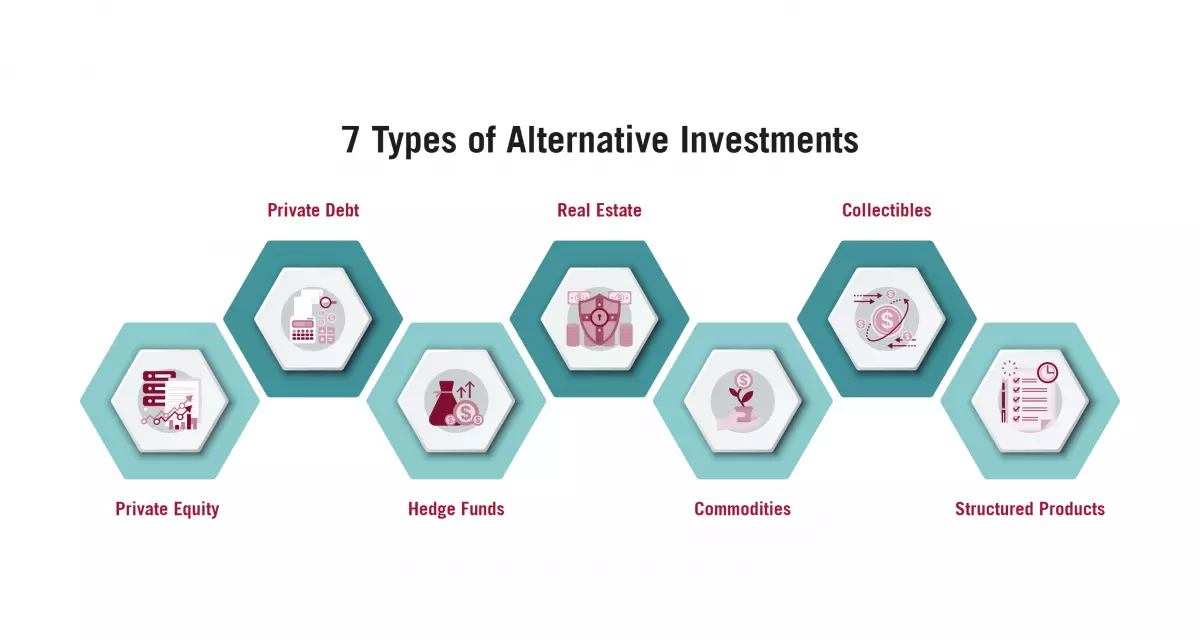When it comes to investing, most people tend to think of traditional options like stocks, bonds, and cash. However, there is a whole other world of investing known as alternative investments that offer unique opportunities for investors. So, let's dive into the world of alternative investments and explore seven types that everyone should know about.
What are Alternative Investments?
Alternative investments refer to asset classes that go beyond stocks, bonds, and cash. Unlike traditional investments, alternative investments are not easily converted into cash and often have a lower level of regulation. They also have a low correlation to standard asset classes, meaning their value may not necessarily move in the same direction as other assets in changing market conditions.
1. Private Equity

Private equity involves making capital investments into privately-owned companies. It includes subsets such as venture capital, which focuses on startups, growth capital for expanding companies, and buyouts where a company or division is purchased outright. Private equity firms not only provide capital but also offer industry expertise, talent sourcing, and mentorship to the companies they invest in.
2. Private Debt
Private debt refers to investments that are not financed by banks or traded on open markets. It offers additional capital to companies for growth purposes. Private debt funds make money through interest payments and the repayment of the initial loan.
3. Hedge Funds
Hedge funds are investment funds that trade relatively liquid assets with various strategies to earn high returns. They are exclusive and available only to institutional investors and high-net-worth individuals. Hedge fund managers specialize in different skills like long-short equity, market neutral, volatility arbitrage, and quantitative strategies.
4. Real Estate
Real estate is the world's largest asset class and includes properties such as land and buildings. Real estate investments generate cash flow from rental payments and aim to increase the long-term value of the asset through capital appreciation. Valuation methods like income capitalization, discounted cash flow, and sales comparables are crucial for successful real estate investing.
5. Commodities
Commodities are natural resources like agricultural products, oil, natural gas, and metals. They act as a hedge against inflation and their value is determined by supply and demand. Commodities have been traded for centuries and offer investors a unique way to diversify their portfolios.
6. Collectibles
Collectibles include items like rare wines, vintage cars, fine art, and more. Investing in collectibles involves purchasing physical items with the expectation of their value appreciating over time. However, this type of investment requires expertise and careful storage and maintenance of the assets.
7. Structured Products
Structured products are complex investment products that combine fixed income markets with derivatives. They offer customized solutions to investors' specific needs and are typically created by investment banks. Structured products gained attention during the 2007-2008 financial crisis, but their complexity carries potential risks.
Alternative investments provide greater portfolio diversification and the potential for higher returns while lowering overall risk. They have become increasingly accessible to a wider range of investors, making it essential for both investors and professionals to understand and consider these options.
If you are intrigued by alternative investments and want to pursue a career in this field, take the time to explore your professional goals and the asset classes that interest you the most. Whether it's venture capital, real estate, or any other alternative investment, there are opportunities for various liquidity, industry focus, and time horizons.
Are you ready to navigate the exciting world of alternative investments? Consider enrolling in our five-week online course, "Alternative Investments," where you can develop the skills and confidence to assess potential investment opportunities and maximize your portfolio's value.
This post was updated on April 14, 2022. It was originally published on May 7, 2020.


















